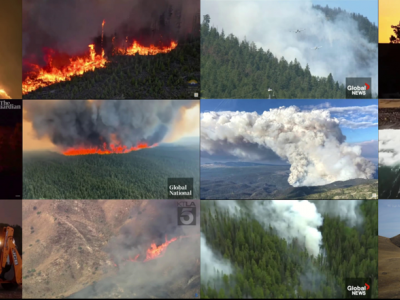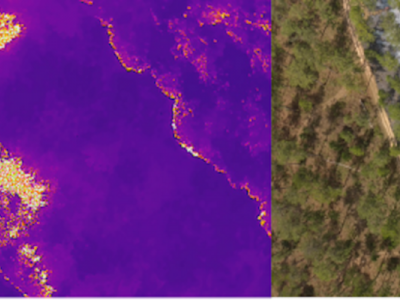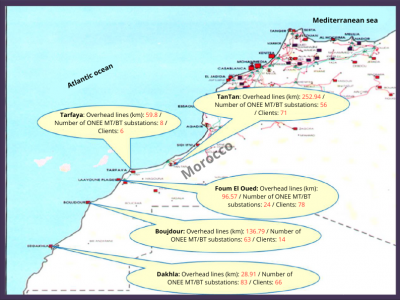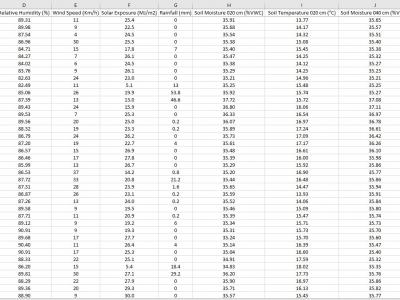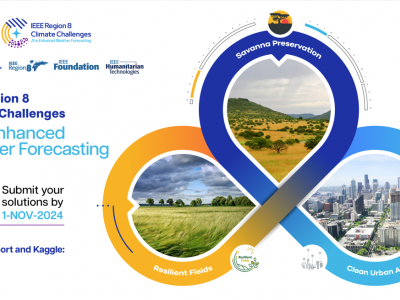Climate Change/Environmental

CO2 Emissions Data Visualization Project – I Hug Trees
- Categories:
 4 Views
4 Views
Monitoring glacier calving fronts is essential for understanding ice dynamics and their response to climate change. The present ice frontdatasets are limited to temporal resolution and precision, making it difficult to efficiently capture the rapid detailed changes in calving processes. In this study, we proposed a novel approach of calving front extraction derived from Sentinel-2 satellite images, integrated with samgeo and geemap modules based on Segment Anything Model (SAM) and Google Earth Engine (GEE) framework.
- Categories:
 22 Views
22 ViewsWe introduce a dataset comprised of energy consumption data from smart meters in French households, capturing detailed, disaggregated time series for various home appliances. This dataset covers a six-month period with a one-minute sampling rate across five different households. The objective of this dataset is to support the development of models that learn disentangled representations of time series energy data, which can significantly enhance model generalization across both in-distribution and out-of-distribution scenarios.
- Categories:
 122 Views
122 ViewsA new small aerial flame dataset, called the Aerial Fire and Smoke Essential (AFSE) dataset, is created which is comprised of screenshots from different YouTube wildfire videos as well as images from FLAME2. Two object categories are included in this dataset: smoke and fire. The collection of images is made to mostly contain pictures utilizing aerial viewpoints. It contains a total of 282 images with no augmentations and has a combination of images with only smoke, fire and smoke, and no fire nor smoke.
- Categories:
 434 Views
434 Views
Due to climate change, the Northwesterner Gilgit Baltistan's, Ghizer district is highly susceptible to glacial lake outburst floods (GLOFs). Nearly 24 GLOFs have occurred in this area in the last ∼200 years, demonstrating the growing recurrent nature of these incidents. Taking this into account, the assessment of risks associated with GLOFs was investigated in this study. All regional glacial lakes were identified in the first phase, and changes between 2000 and 2023 were mapped using moderate-resolution satellite images (Landsat).
- Categories:
 80 Views
80 Views
Beijing, Hangzhou, Shenzhen, and Chongqing. For each city, a total of 4337 hourly AQI records from January 1, 2024, to June 29, 2024, were selected. In Beijing, the primary observation point was the Tiantan observatory, with auxiliary observation points at Wanshouxigong, Guanyuan, and Olympic Sports Center. Similarly, in Hangzhou, the main observation point was the City Government Building, and auxiliary observation points were Binjiang, Xisha, and Yunqi. In Shenzhen, the main observation point was Longgang, with auxiliary observation points at Overseas Chinese Town, Guanlan, and Xixiang.
- Categories:
 34 Views
34 ViewsThis dataset supports the manuscript titled “Strategies for Mitigating Degradation of Medium Voltage Electrical Equipment in Harsh Saline Environments.” The study focuses on identifying and addressing the challenges faced by medium voltage equipment in coastal environments characterized by high salinity, humidity, and extreme weather conditions. The dataset includes:
- Categories:
 102 Views
102 ViewsThe data is collected from the deployed IoT sensor node at a pilot farm in Narrabri, Australia. The dataset includes information about soil characteristics such as soil moisture and soil temperature at 20-40-60 cm depth. The sensor node also provides information about environmental influencers, which are critical in constructing machine learning models to predict Evapotranspiration in diverse soil and environmental conditions.
- Categories:
 649 Views
649 Views
